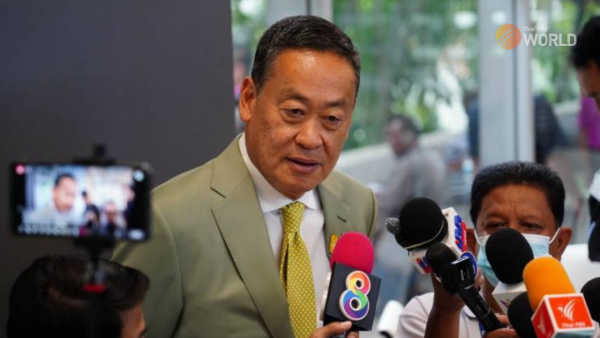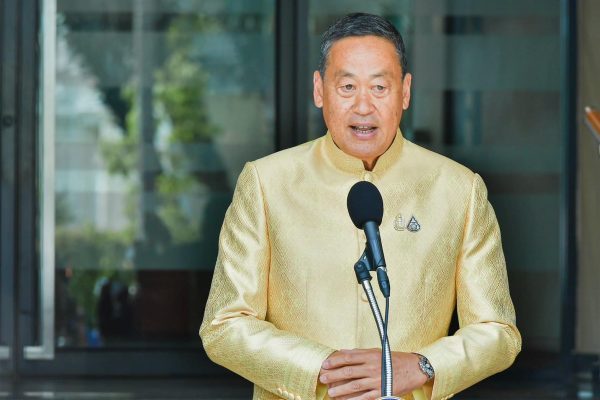Thailand and world prepare for cryptocurrency challenges

The Libra project has shaken the global financial scene since Facebook, with a group of founding members, announced the proposed cryptocurrency last month.
The plan to launch a new currency next year is ambitious and controversial, as Libra is scrutinized by central banks around the globe, including the US Federal Reserve.
The cryptocurrency concept is not far-fetched, as evidenced by the success of Bitcoin. It is a result of an evolving monetary system, which is moving toward digital payment systems backed by blockchain technology.
Thailand is moving toward a cashless society. Bank notes and coins are set to become obsolete while transactions via electronic payments have increased over recent years.
Backed by the Geneva based Libra Association, Libra will not only trigger changes in payments, but its impact will ripple through the global financial system. Some are concerned over the privacy of personal accounts in Facebook, as it remains unclear how the social media platform will be related to the new currency system.
Thai reaction
This week, Facebook’s executives are scheduled to testify before the US Congress about the Libra project, while Thailand’s financial regulatory bodies are also working to get ready for Libra.
The Bank of Thailand has set up a special team to study Facebook’s “stable coin” and its 12-page white paper, while scheduling a meeting with Facebook in Thailand to get more details about the project.
At present, there is no Thai law with direct jurisdiction over cryptocurrencies or Libra. The closest one may be the Royal Decree on Digital Asset Business B.E.2561 (2018), which brings digital assets and operations of crypto exchanges and intermediaries under the purview of the Securities and Exchange Commission (SEC).
The current digital asset degree may not have direct authority over cryptocurrency, but it has jurisdiction over digital token investment and intermediaries involved in the exchange of crypto assets in Thailand.
The SEC’s senior officials said they are working with the central bank to determine the implications of Libra.
The introduction of the new cryptocurrency will impact banking operations, especially cross-border money transfers. If the Libra Association can form a global network to accept the new currency, it can offer money transfer services without intermediaries and at a lower cost.
Thailand offers the possibility of mass adoption of the new currency because the country has around 50 million registered Facebook users.
Commercial banks in Thailand are also studying the details of Libra, fearing that they may fail keep up with the latest developments.
Ms. Apiphan Charoenanusorn, President of the Siam Commercial Bank (SCB), said Libra will directly affect the commercial banking industry, adding that SCB is studying details to determine the possibility of taking part in the Libra scheme because there are business opportunities as well.
Mr. Thakorn Piyaphan, Chief Executive Officer of Krungsri Consumer, Digital Bank and Innovation Bank of Ayudhya, said the new financial technology forces every financial institution to rethink their business models and cooperate with other technological and social media startups. The bank is looking at various options, including forming a joint venture with other banks to participate in Libra instead of investing alone.
Mr. Predee Daochai, Chairman of Thai Bankers’ Association, said, in spite of skepticism from the US Federal Reserve, if the Libra project is realized, it can offer financial services to users at lower cost than those currently offered by commercial banks. Therefore, financial institutions will have to adapt to changes that come with new technology.
New currency on the block
The international monetary system has evolved from the Gold Standard in the 1870s, to Bretton Woods and the current international monetary system.
Regardless of Libra, another organizations reportedly plan to launch their own crypto-currencies and develop blockchain technologies to ensure their presence in the international monetary scene.
Mr. Suprit Suwannik, of the Department of Macro Economics at the Bank of Thailand, said in a report released earlier this month that, based on the white paper, Libra is designed to be a global currency backed by a basket of fiat currencies, unlike Bitcoin whose value is not tied to any traditional financial system.
Nonetheless, Libra will have to meet three key qualifications to earn its place as a new currency, which are related to medium of exchange, store of value and unit of account.
First, Libra will have to be accepted as a legal tender for payment for goods and services. However, some governments, including the US, have already expressed reservations.
Secondly, the new currency must earn credibility to store the value. Traditionally, the value of a national currency is mirrored by the fundamentals of its economy. Thus, there are questions about how Libra can be an alternative to sovereign currencies. To become a widely-accepted currency, Libra must not experience too much volatility in order to maintain the asset values of account holders.
Third, Libra must earn trust from businesses and consumers to become unit of direct exchange to become a new currency.
If it does, consumers may see restaurateurs marking menu prices in the Libra currency, instead of Thai Baht.






